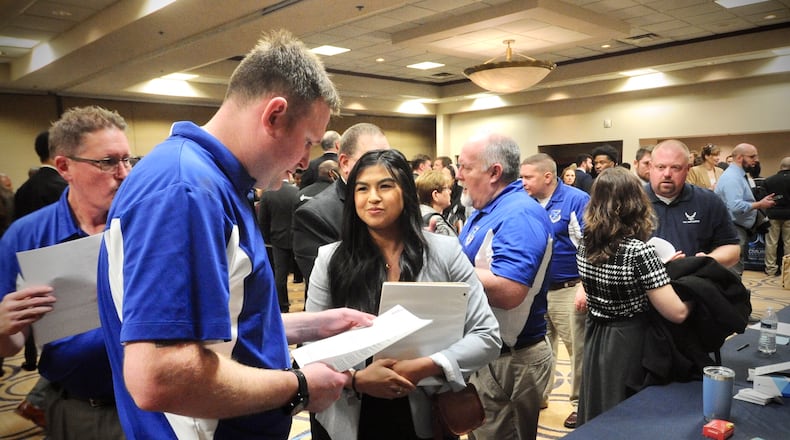“Veteran unemployment has been well below the national unemployment rate for years and reflects how business values veterans in their workforce,” Eric Eversole, president of Hiring Our Heroes, told Stars and Stripes by email Jan. 12. “The larger issue is underemployment and making sure that a newly transitioned veteran is placed in the right opportunity and provides them with a strong growth pathway.”
Approximately 261,000 veterans were unable to find full-time employment in December, putting the veteran unemployment rate at 3%, still below the national rate of 3.7%, according to the Bureau of Labor Statistics.
Veterans who served after September 2001 experienced the highest unemployment rate, 3.3%, of any veteran group categorized by the bureau. The average rate last year for veterans in a category that includes World War II, Korea and Vietnam was 3.1%. Gulf War-era veterans were at 2.8%.
“We have seen a paradigm shift in veteran unemployment,” Eversole said. “When Hiring Our Heroes was founded in 2011, we saw widespread unemployment among veterans, especially among those veterans under the age of 25.”
Credit: Marshall Gorby
Credit: Marshall Gorby
In 2021, Ohio was named a Military Spouse Economic Empowerment Zone by the U.S. Chamber of Commerce’s “Hiring Our Heroes” program.
At their local “Ohio Means Jobs” centers, veterans and spouses can get help with job searches, attend workshops and more, state officials have said.
Ohio has 88 such centers. Dayton’s is at 1111 S. Edwin C. Moses Blvd.
In general, Ohio has passed or advanced several family-focused issues that matter to the Department of Defense, among them: easing the transfer of occupational licenses from other states and recognizing schools that show a commitment to students and families connected to the military.
And Ohio grants in-state tuition or financial aid for all military family members.
Maybe the best thing Ohio can offer veterans, state advocates say, are defense-oriented jobs. According to JobsOhio, Ohio is home to some 380,000 defense industry jobs, delivering nearly $40 billion in gross regional product. Surrounding those military and government installations is an industrial base that represents $69 billion in economic activity, accounting for nearly 6% of the state’s economy.
The collaboration between the public and private sectors in supporting veterans’ transition to civilian employment is important, Eversole said.
“It’s not just about finding a job; it’s about finding the right career that honors the service and sacrifices of our veterans while utilizing their unique skills and experiences,” he said.
More than 45,000 nonprofits serve veterans and their families to help support them with employment, medical needs and financial help, according to Nonprofit Pro, a source for nonprofit professionals.
Reporter Tom Gnau contributed to this story.
About the Author

